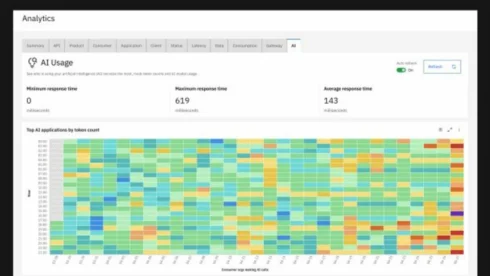
At its IBM THINK conference today, IBM introduced new updates that will help alleviate some of the challenges associated with scaling AI agents.
“The era of AI experimentation is over. Today’s competitive advantage comes from purpose-built AI integration that drives measurable business outcomes,” said Arvind Krishna, chairman and CEO of IBM. “IBM is equipping enterprises with hybrid technologies that cut through complexity and accelerate production-ready AI implementations.”
New agent capabilities in watsonx Orchestrate include:
- New tools for integrating, customizing, and deploying agents
- Pre-build domain agents for HR, sales, and procurement
- Integration with over 80 enterprise applications, including ones from Adobe, AWS, Microsoft, Oracle, Salesforce Agentforce, SAP, ServiceNow, and Workday
- Agent orchestration capabilities for complex projects like workflow planning and task routing that require coordination between multiple agents and tools
- Agent observability across the entire agent life cycle
The company also announced Agent Catalog, which makes it easier to access agents and pre-built tools from IBM and its partners. At launch, it includes over 150 agents and tools, from partners like Box, MasterCard, Oracle, Salesforce, ServiceNow, Simplistic.ai, and 11x.
Additionally, to help reduce integration sprawl across apps, APIs, partners, events, gateways, and file transfers, IBM announced webMethods Hybrid Integration (available in June), which offers agent-drive automation. It provides a hybrid control plane that offers centralized management and visibility of all of a company’s integrations.
API Connect was also updated with an API Agent that reduces API sprawl, security risks, and governance challenges. It has access to a company’s entire resource catalog, and also has knowledge of software development and API best practices. Before it generates a new API, it will search the existing catalog to ensure a suitable API doesn’t already exist.
It produces documentation for APIs it creates so that applications using the API can have greater context into what it does. API Agent can also fix validation errors and generate re-usable test cases to ensure consistency over time.
“As the boundaries between humans, systems and AI continue to blur, the ability to seamlessly create, manage and scale APIs will be a competitive advantage. With API Agent, enterprises can stay ahead—building smarter, governing better and unlocking the full potential of an AI-driven, agentic future,” IBM wrote in an announcement.
Finally, the company is introducing new ways to get value from unstructured data. Watsonx.data will now combine data fabric capabilities into the open data lakehouse, to help customers unify their data across silos, formats, and clouds.
Meanwhile, watsonx.data integration is a single-interface tool for orchestrating data across multiple formats and pipelines, while watsonx.data intelligence will use AI to extract insights from unstructured data.

